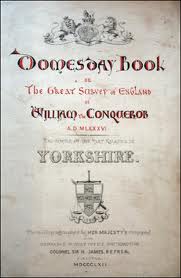BURLINGTON, ON.
January 23, 2014
In Ray Bradbury’s 1953 dystopian novel, 451 Degrees Fahrenheit, The main character is a civil servant (fireman) whose job is to eradicate literature and other culture, and those who harbour it. Facts can complicate policy, and scientific knowledge can get in the way of pursuing policies for a government determined that it already knows all the answers. Bradbury’s novel is a cautionary tale for a society subject to the whims of leaders more persuaded by dogma than reality.

The federal government isn’t burning books – they just put them in places where you can’t get at them.
Joseph McCarthy’s House Un-American Activities Commission and Nazi Germany’s infamous 1930’s open-air book burnings were the inspiration for Bradbury’s novel. The act of destroying books is called biblioclasm or libricide, regardless the nature of the destruction. This is hardly a new phenomenon since history dates an early book burning back to the 7th century BC when the King of Judah, Jehoiakim, burned the prophet Jeremiah’s biblical scroll.
 Calgary journalist Chris Turner has written a book, ‘The War on Science’, which documents Stephen Harper’s attack on basic science, science communication, environmental regulations, and the environmental NGO community. Turner claims this is the most vicious assault ever waged by a Canadian government on the fundamental principles of the Enlightenment. And indeed, we have never seen anything like this before.
Calgary journalist Chris Turner has written a book, ‘The War on Science’, which documents Stephen Harper’s attack on basic science, science communication, environmental regulations, and the environmental NGO community. Turner claims this is the most vicious assault ever waged by a Canadian government on the fundamental principles of the Enlightenment. And indeed, we have never seen anything like this before.
Turner highlights how the government closed Arctic research stations as oil drilling began in the high Arctic, presumably to hide the effects of that activity on the environment. He notes how research budgets were slashed in agriculture, enabling industry to monopolize our food health and safety. He points out how the nation’s fisheries policy has been turned on its head in order to accommodate development which normally would have been prohibited over concerns about fish habitat and water quality.
Since becoming PM, Mr. Harper has dismissed over 2000 scientists and muzzled those who remain. Media have been confounded in trying to understand complex environmental, and other scientific, issues in the absence of the government experts they had come to rely upon. Indeed, the long tradition of independence of the science community has been brought to an end by a government that prefers to hear what it wants, rather than the truth as it is – bringing to modern life, one day, the Hans Cristian Andersen fable of the Emperor and his new clothes.
Then there are the science libraries being closed – seven out of eleven aquatic research regional libraries, housing decades of irreplaceable information about our waterways and the oceans, have been shuttered. The Department of Fisheries and Oceans (DFO) spokespeople claim that vital documents are being converted onto electronic format, but the research scientists are crying foul as they watch so many studies being pitched and destroyed. I have nightmares of my writings from my work with DFO being used as kindling for the fires.

The first census. Even in the time of William the Conqueror they understood that data was relevant. Not the view of the Harper government.
I suppose we might have seen this coming. After all, the federal government abandoned the detailed census (long form) a couple of years ago making inter-temporal census tract and other comparisons difficult, if not impossible. I always understood census information to be a key function of government – at least since William the Conqueror pioneered data collection, in 1086, with his assembly of the Domesday book. I relied extensively on census data in some of my research work, and I would have thought Mr. Harper did as well in his earlier life.
The cost of keeping the library records alive is estimated at less than a half-million dollars, which is peanuts for a government happy to spend over $2 million advertising a job training program which doesn’t even exist. And it really pales in comparison to the $40 million annually spent promoting the oil sands. Sorry, but why are we advertising for the oil companies? Clearly then, the decision to eliminate our store of scientific knowledge is not about the cost. It must be about what Bradbury, Orwell and other enlightened authors were trying to tell us.
Stephen Harper came to office with a goal to transform Canadian society, and he has re-shaped much Canadian public policy since winning a majority of Commons seats. He has the mandate, and while I disagree with him on much of what he is doing, I do not deny him the right to exercise his will as Prime Minister and leader of the governing party. But I never thought he was going to take aim at science and knowledge, the very areas Harper himself claims will provide Canada a profitable and sustainable future.
As I write this column Mr. Harper is in Israel. I can’t but be struck by the irony of his affection for the Jewish people, who suffered through their own period of book destruction, as he shuts down our libraries and trashes our own scientific history. In the words of the beloved and insightful German-Jewish poet Heinrich Heine, from his 1821 play, Almansor,- “Dort, wo man Bücher verbrennt, verbrennt man am Ende auch Menschen”: “Where they burn books, they will also ultimately burn people.”
 Ray Rivers writes weekly on both federal and provincial politics, applying his more than 25 years as a federal bureaucrat to his thinking. Rivers was a candidate for provincial office in Burlington where he ran against Cam Jackson in 1995, the year Mike Harris and the Common Sense Revolution swept the province. He developed the current policy process for the Ontario Liberal Party.
Ray Rivers writes weekly on both federal and provincial politics, applying his more than 25 years as a federal bureaucrat to his thinking. Rivers was a candidate for provincial office in Burlington where he ran against Cam Jackson in 1995, the year Mike Harris and the Common Sense Revolution swept the province. He developed the current policy process for the Ontario Liberal Party.
Background links:
Fahrenheit 451 Book Burning Fisheries libraries The Census Harper Reshapes Canada
Long form Census Domesday Book Canadian Science Libraries War on Science 2


















